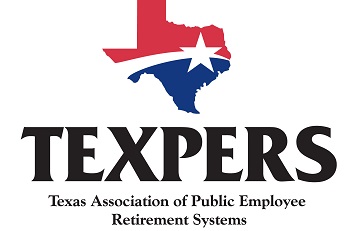When the Texas Legislature is in session, there’s all sorts of strange alliances. This year was no different with respect to HB 2608, a bill introduced by Houston Rep. Jim Murphy in response to that city’s decades-long underfunding of its pensions and over spending of its general budget. The bill would transfer control of vast sums of investment money to Wall Street and decrease the stimulus afforded our economy by defined benefit pensions. The law would reach far beyond Houston city limits, to about 100 other pensions across Texas.
As of this writing, we’re not sure of the bill’s ultimate fate. We hope it fails. But the strange thing was seeing HB 2608 gain the support of the Texas Association of Businesses, as it would harm every single one of its members by jeopardizing capital movements in Texas.
Beyond its Houston backers, the only supporters of HB 2608 were Austin- and Washington-based policy foundations which want to transition all defined benefit plans to defined contribution plans for public employees. Make no mistake: this was the ultimate goal of HB 2608.
In other words, like many private sector employees, firefighters, police, and municipal employees would be tasked with becoming their own investment managers in 401(k)-styled retirement plans. They will be herded into a limited number of stock and bond mutual funds that invest only in publicly-traded companies controlled by Wall Street.
That would be a radical change. In recent years, Texas’ state and local pension boards have invested 25% or more of their cities’ and employees’ contributions in alternative assets, e.g., oil and gas exploration, commodities, toll roads, commercial real estate, hospitals and healthcare facilities, and many other businesses in Texas and other states, which operate outside of New York’s control. While we don’t have exact figures, this amount is in the tens of billions of dollars.
While HB 2608 is touted as giving local control of pensions to cities, its most significant effect would be to give New York more Texas money. It would also jeopardize the steady stream of pension benefits paid to retired Texas public employees because of the uneven results of do-it-yourself retirement investments.
That income stream is significant. A 2010 Perryman Group study found that the Texas economy gets a yearly boost of $10 billion from defined benefit plan payments to hundreds of thousands of teachers, police, firefighters, and municipal employees. To provide perspective, $10 billion is five times the total payroll of Texas agriculture; four times the payroll of petroleum refining and related industries; and the total military payroll within Texas (in 2010 figures).
So just ask your average Texas business person whether they would want to jeopardize, to any degree, the economic stimulus created by their local military base. Guess what their answer would be. Why would the Texas Association of Businesses support HB 2608?
Local pensions are a vital part of the Texas economy and our business community benefits greatly from the status quo. It would be a great misfortune to alter a system which has been working well in most parts of the state.
